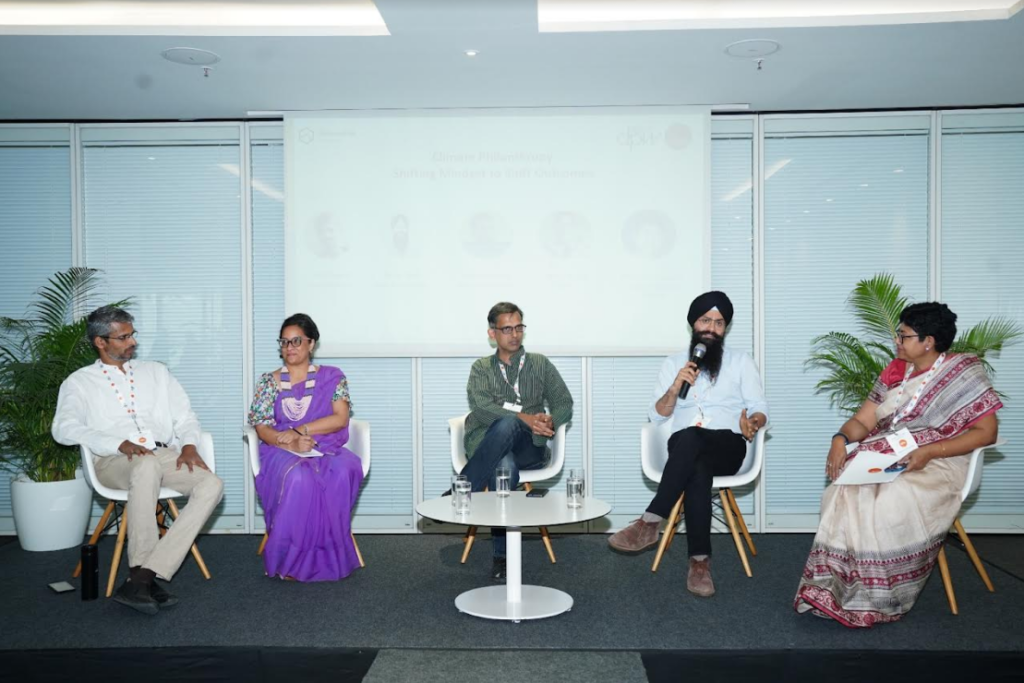Epson’s Climate Reality Barometer 2023: Indians Show Strong Commitment to Tackling Climate Change Through Sustainable Actions

Telugu super news, novenber 2,2023:In 2021, Epson published its first Climate Reality Barometer: a survey of people from diverse countries, ages and backgrounds to gauge understanding of, and attitudes towards, climate change. 2023 marks Epson’s third edition of the Climate Reality Barometer. It presents updates and new insights into how attitudes are (and are not) changing as the climate crisis unfolds. This year’s Barometer reached over 30,000 people across 39 global markets including 3000 adults in India.
India is facing increasing challenges in dealing with extreme heat on the one hand and devastating floods on the other, due to climate change. India already faces water stress, and climate change is expected to worsen the situation. A 2°C temperature rise could make the monsoon highly unpredictable. Extreme rainfall events and abrupt changes in the monsoon could lead to droughts and flooding in various parts of the country. Rising temperatures, water scarcity, and sea-level rise pose significant threats to crop yields and food security. Climate change is projected to have major health impacts, including malnutrition, vector-borne diseases, and heat-related illnesses (Source).

Epson’s Climate Reality Barometer 2023 indicates that while Indians are concerned about climate change, they remain extremely positive when it comes to its likely impact. This is a concern and may be indicative that Indians have not completely understood the likely impact, now or in the future. What’s heartening however is that Indians are already acting on certain things to mitigate the climate emergency. In many areas they lead the world. The key highlights from a sample of 3000 Indians are below:
● 58.6% of Indians think climate change is one of the biggest issues facing the world today, followed by rising prices (46.4%) and poverty (32.1%). Globally too this is the top issue with 55.32% of respondents rating it a major concern.
● However, 76.7% of people in India are optimistic that we will avert a climate disaster in their lifetime. This is well above the global average of 47.04% of people being optimistic. Only Saudi Arabians are more optimistic than Indians at 78.99%.
● 10.4% of people in India are pessimistic that we will avert a climate disaster in their lifetime. This is significantly lower than the global average of 26.58% people who are pessimistic.
● On an encouraging note, Indians are the most likely to boycott unsustainable brands in the world, with 83.35% of respondents saying they already boycott or are likely to boycott such brands in future. The worldwide average for this is just 64.66%. And while the worldwide average of people who want to or have already switched to an electric vehicle is 70.3%, India leads the world with 87.38% showing positive intent on this issue.

● Nearly 7 in 10 Indians are already reducing plastic use (68.8%) and over half of the population are improving their recycling habits to fight climate change (58.7%). Reusable shopping bags are already being used by 64.1% of those surveyed.
● Like most people around the world Indians also believe that Corporates have an important role to play in the fight against climate change. Indians believe the most important things companies can do are: Invest in environmental technologies (48.7%), Improve recycling and reuse products (40.7%), Encourage employee participation in environmental activities (30.31%)
Reality now: What’s next?
The 2023 Epson Climate Reality Barometer shows progress around the world and more acknowledgement of the issues and challenges we face. In India while we should be optimistic that action will lead to positive change – we must not let this optimism limit our actions.
At Epson, we are acting in the face of climate change – not freezing in its headlights. We believe that no one individual, community, company, technology, government or even hemisphere can tackle these challenges alone. It is only by coming together that we can avert catastrophe. Epson’s Barometer shows us the way forward as people look to companies to take the lead on the green transition. Epson sees technology as an enabler, with products that are designed to use fewer resources in production and use, last for longer, are more easily repairable, can be re-used and are more easily recycled. Together, we can create the solutions that people need as they act to mitigate climate impact. Working together, Epson believes that we can all build a better future.

Samba Moorthy, President of Epson India said, “The Epson Climate Reality Barometer once again shows us that some people continue to ignore catastrophic climate change and refuse, or feel unable, to act. It is however heartening to note that Indians are making serious efforts to bring in a change. These issues we face are a challenge for us all and if we are to solve the climate crisis, we must act as one. There are also powerful lessons here for all businesses as they seek to understand and support individuals in their move towards more climate positive lifestyles. At Epson, as we transition into an indispensable company that uses our efficient, compact and precise technologies to achieve sustainability in a circular economy – we continue to listen, because if we want to change the world, first we must understand it.”




